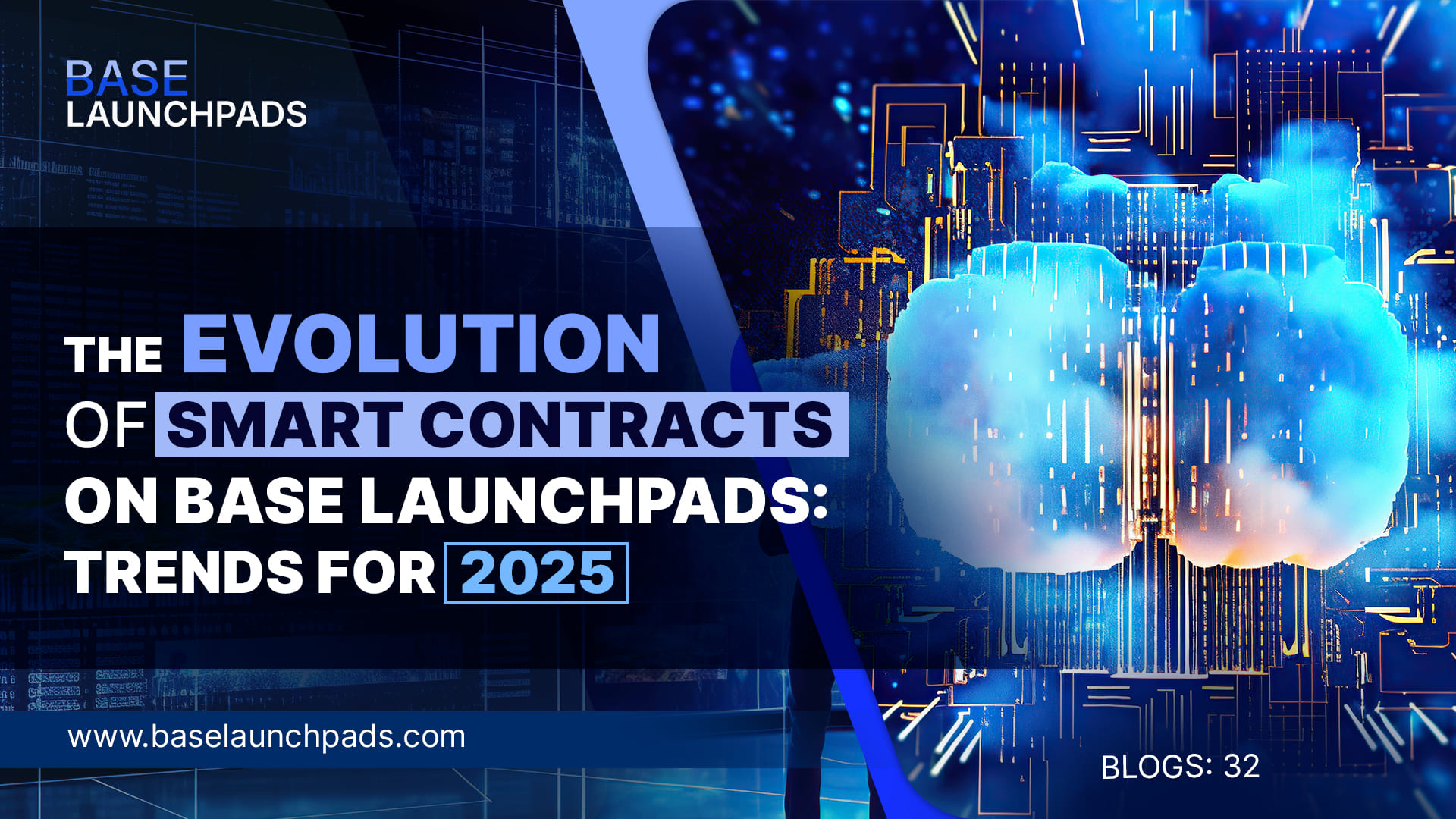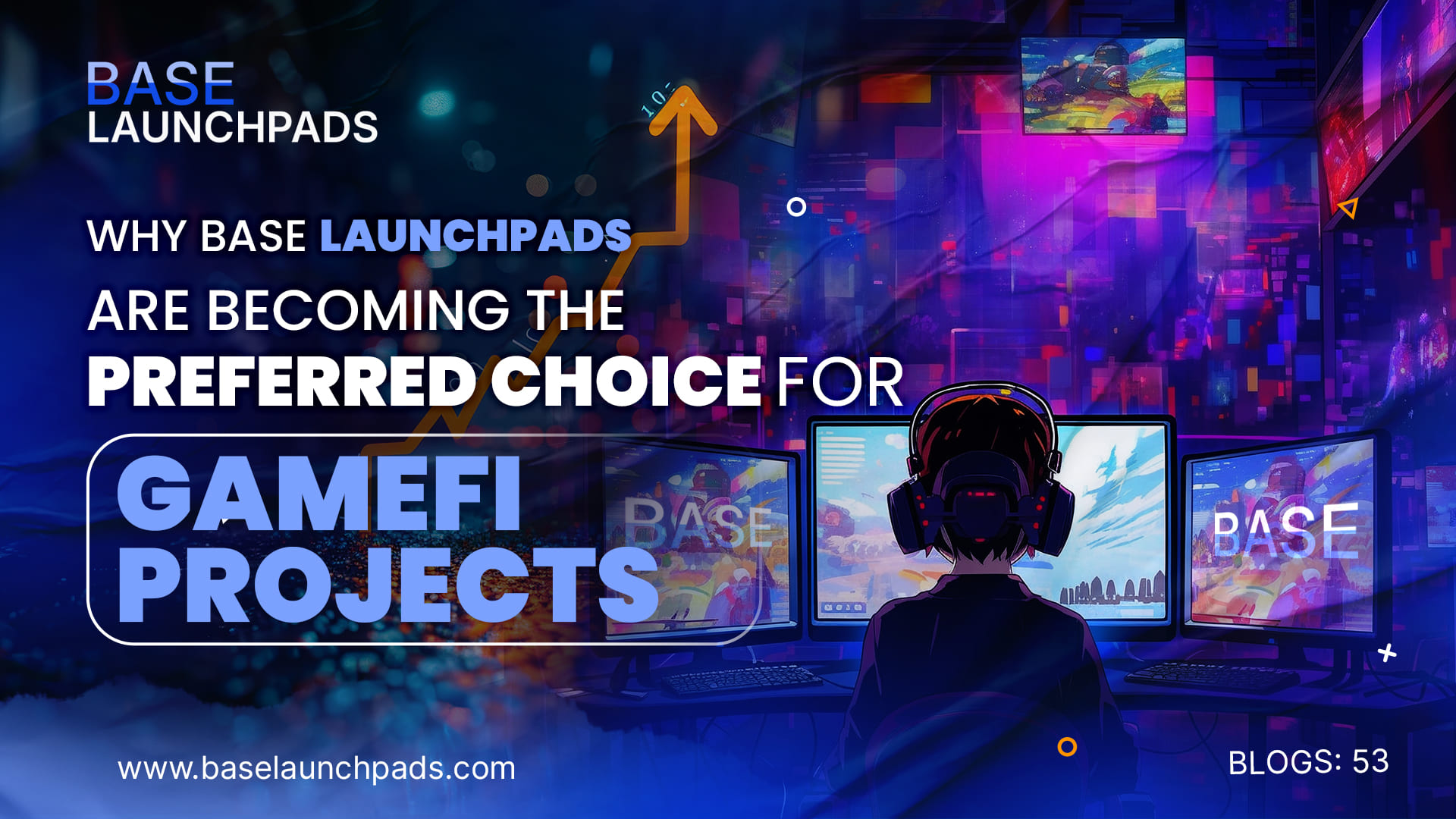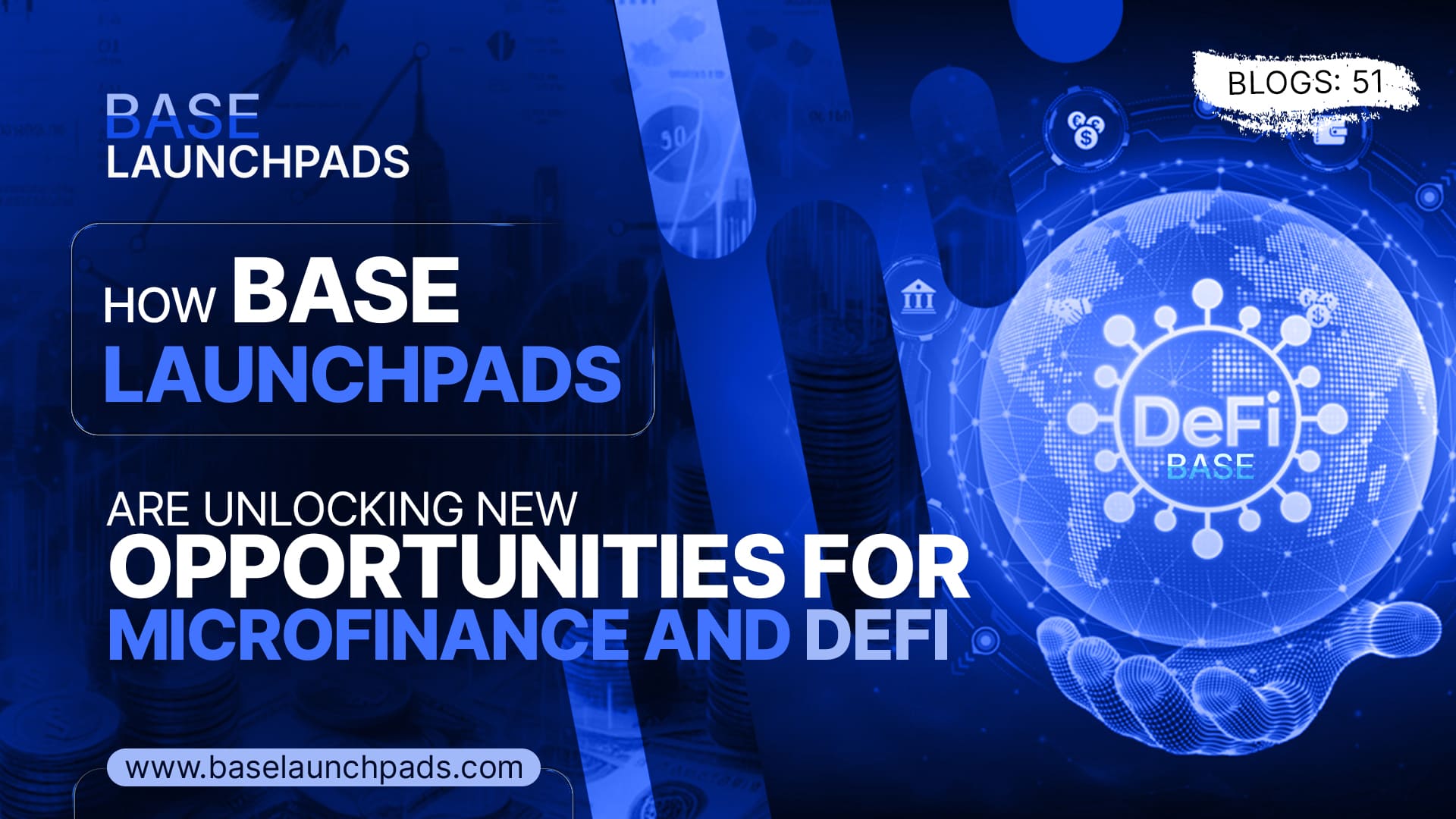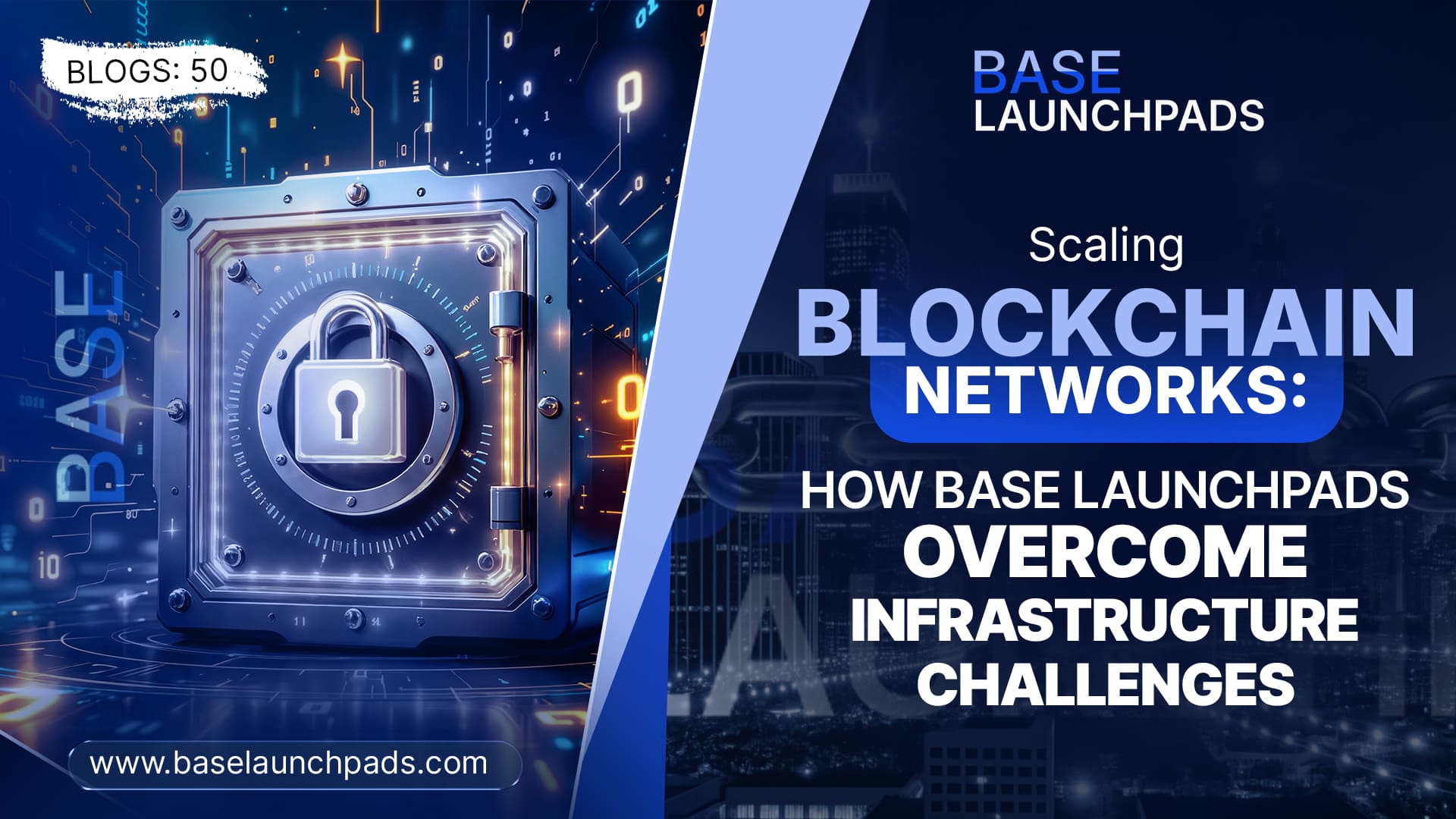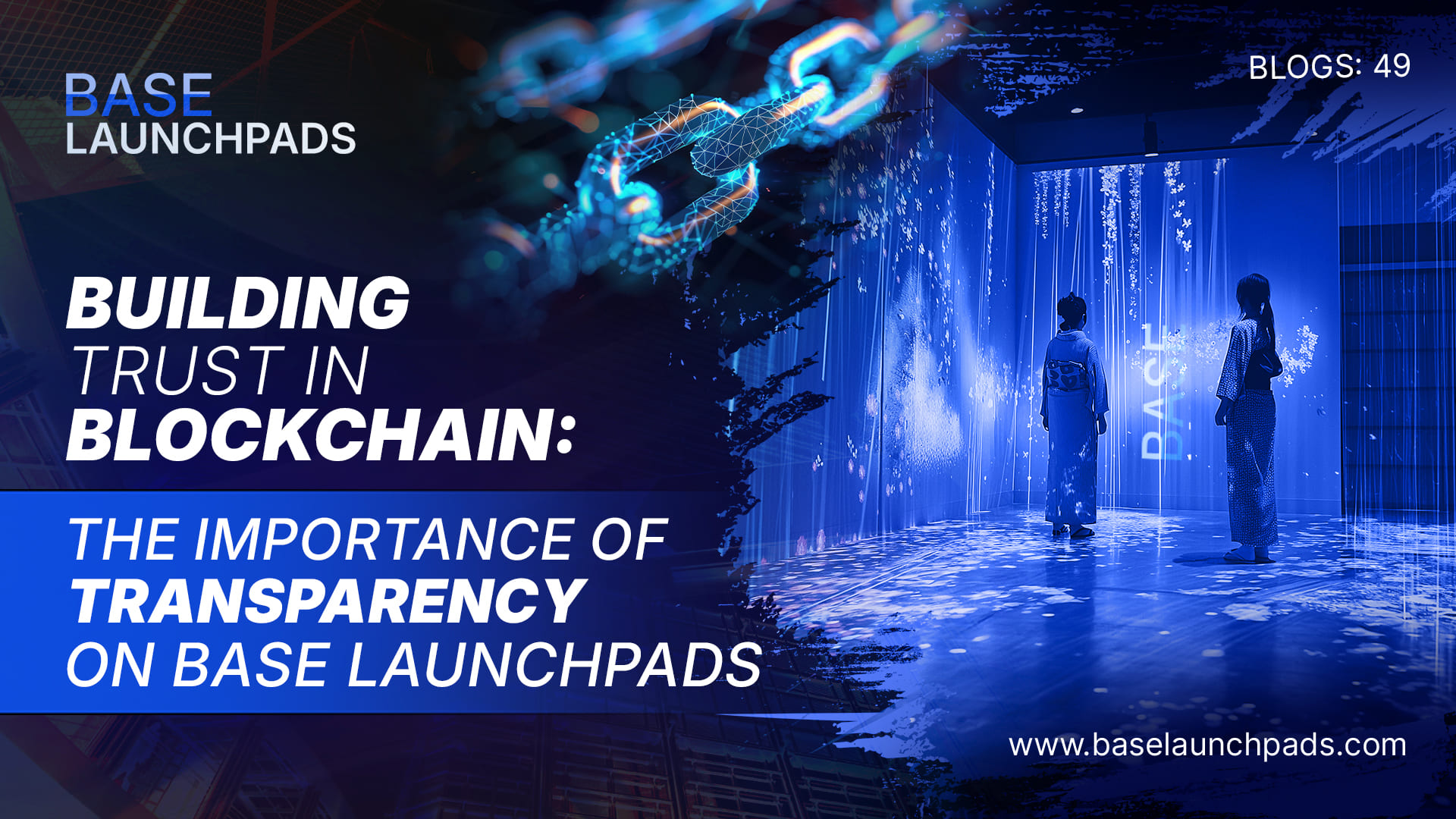January 22, 2025
The Evolution of Smart Contracts on Base Launchpads: Trends for 2025 - test
As the decentralized finance (DeFi) landscape continues to mature, smart contracts have become a cornerstone of blockchain innovation. Base Launchpads, which serve as incubators for promising blockchain projects, are embracing this evolution by integrating advanced smart contract functionalities. In this post, we explore how smart contracts are evolving on Base Launchpads and highlight the trends set to define 2025.
The Rise of Smart Contracts
Smart contracts revolutionized blockchain technology by automating transactions and enforcing agreements without the need for intermediaries. Early implementations focused on basic transactional operations, but as blockchain use cases expanded, so did the complexity and capability of smart contracts. Base Launchpads have been at the forefront of this evolution, leveraging smart contracts to streamline token launches, facilitate automated governance, and enhance security protocols.
Key Trends for 2025
1. Enhanced Security and Auditing
Security remains a critical concern in the blockchain ecosystem. In 2025, expect to see smart contracts on Base Launchpads integrating more robust security measures:
- Automated Audits: AI-powered auditing tools will continuously monitor smart contract code, identifying vulnerabilities in real time.
- Formal Verification: Increased adoption of formal verification methods will ensure that smart contracts perform as intended, reducing the risk of exploits.
- Multi-Signature and Threshold Schemes: Advanced authorization schemes will add layers of security for executing high-stakes transactions.
2. Automated Governance and DAOs
Decentralized Autonomous Organizations (DAOs) are gaining traction as a method for community-driven project management. Smart contracts will play a pivotal role in:
- Automating Voting Processes: By encoding voting rules and proposals directly into smart contracts, DAOs will become more transparent and efficient.
- Dynamic Governance Models: Future models will adapt governance structures in response to changing market conditions, allowing for fluid decision-making processes.
- Incentive Mechanisms: Smart contracts will ensure fair distribution of rewards and penalties, fostering a balanced ecosystem for stakeholders.
3. Interoperability and Cross-Chain Functionality
The blockchain space is becoming increasingly interconnected. In 2025, smart contracts on Base Launchpads are expected to support:
- Cross-Chain Communication: New protocols will facilitate seamless interaction between different blockchain networks, enabling asset transfers and collaborative projects.
- Standardized Protocols: Adoption of universal standards will reduce friction and improve integration across diverse blockchain ecosystems.
- Bridging Traditional Finance: Enhanced interoperability will pave the way for integrating legacy financial systems with decentralized technologies, broadening the appeal of Base Launchpads.
4. Scalability and Efficiency Improvements
Scalability has long been a challenge for blockchain networks. Future smart contracts will leverage:
- Layer 2 Solutions: By offloading transactions to secondary networks, Base Launchpads can reduce congestion and lower gas fees.
- Optimized Coding Practices: New programming frameworks and languages specifically designed for smart contracts will improve performance and reduce execution costs.
- Parallel Processing: Emerging technologies may allow multiple smart contract functions to run concurrently, drastically improving processing times.
5. Innovative Use Cases and Integration
As smart contract technology matures, Base Launchpads are poised to explore new territories:
- Tokenized Assets: Beyond cryptocurrencies, expect smart contracts to facilitate the creation and management of tokenized assets ranging from real estate to intellectual property.
- Decentralized Insurance: Automated insurance protocols can assess risk and process claims without human intervention, opening up new financial products.
- Customizable Protocols: Modular smart contract frameworks will allow developers to tailor functionalities to specific project needs, fostering innovation and flexibility.
Conclusion
The evolution of smart contracts on Base Launchpads is a testament to the rapid innovation in the blockchain space. With enhanced security, dynamic governance, improved interoperability, and scalability improvements, smart contracts are set to transform the way projects launch and operate in 2025. As these trends take hold, developers and investors alike will benefit from a more secure, efficient, and innovative ecosystem.
Embracing these advancements will not only ensure that Base Launchpads remain competitive but also pave the way for the next generation of blockchain applications. The future is smart—and it’s automated.
